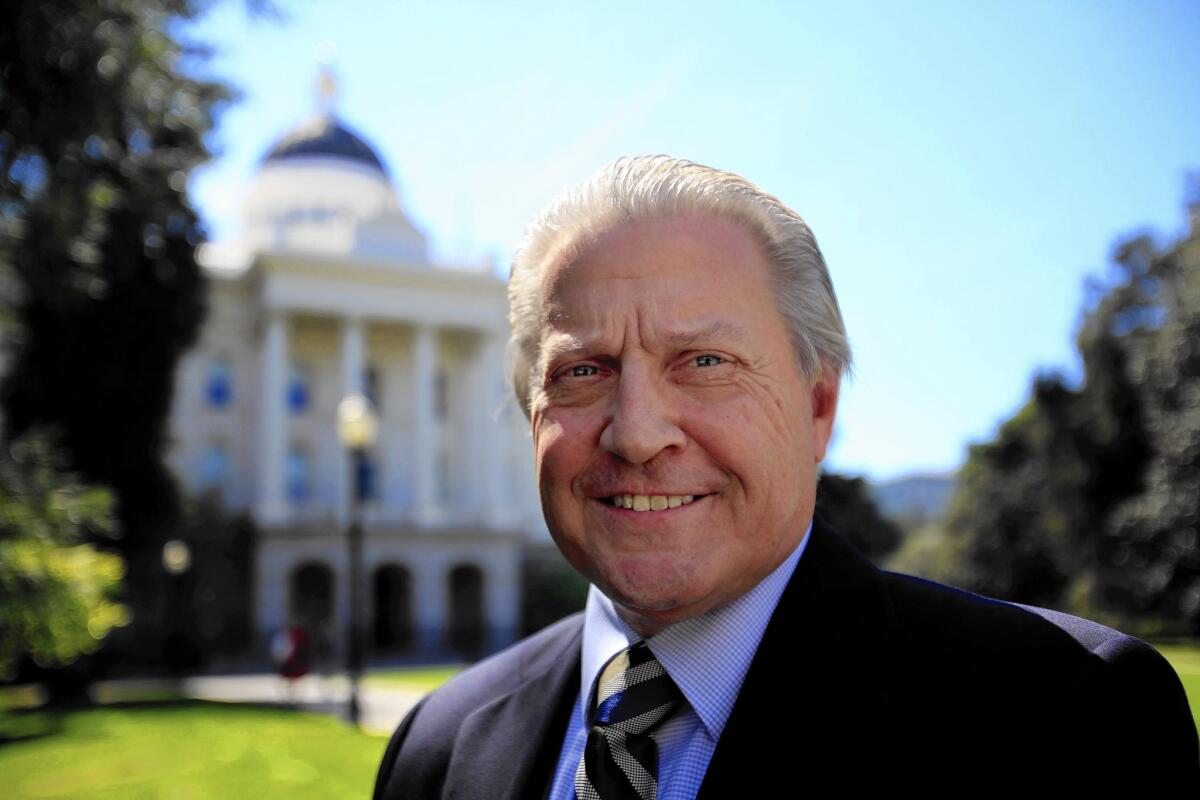Bills on workers’ comp bias and ride-sharing safety are resurrected

- Share via
Reporting From Sacramento — “No bill ever really dies” is accepted wisdom at the Capitol among lobbyists for business, labor, consumers and other special interests.
Proposed legislation killed one year routinely is resurrected the next. And even landmark bills that do pass are targeted in following years by opponents seeking to revise and weaken them.
“They keep rising from the dead,” said Bill Dombrowski, president of the California Retailers Assn., a two-decade statehouse veteran. “A lot of bills fail the first time. They’re more research projects than real possibilities.”
Case in point, he said, was a coalition of big-box stores and independent retailers that made at least three attempts to force Amazon.com and other Web-based sellers to start collecting state sales tax on Californians’ purchases. A bill finally passed in 2011 and was signed into law.
This year’s still-early legislative session is no different. New versions of old ideas are queued up for committee hearings that are starting this week.
Lawmakers once again are grappling with complaints from injured workers that insurers unfairly slash their disability payments. A bill by Assemblywoman Lorena Gonzalez (D-San Diego) would partially address the problem of alleged bias against women hurt on the job. The bill has strong backing from labor unions.
The measure is aimed at insurers and their medical experts who wrongly blame work-related injuries on female-only health conditions such as pregnancy and menopause. The bill, AB 305, would make it illegal to shift the blame to avoid paying workers’ compensation benefits.
“Workers’ compensation insurers often treat being female as a ‘pre-existing condition,’” Gonzalez said. “It’s time to outlaw penalties against injured working women based on their gender.”
Charges that workers’ compensation insurers and employers discriminate against women are not true, said Jerry Azevedo, a spokesman for the Workers’ Compensation Action Network, an industry group. Such decisions “can not be based on gender. Period.”
Another bill back from legislative purgatory is AB 24 by Assemblyman Adrin Nazarian (D-Sherman Oaks). Nazarian’s proposal, which is supported by taxicab companies, would require that drivers for ride-sharing companies, such as Uber and Lyft, undergo full state Department of Justice fingerprint and background checks.
“We need to have some sort of standard in place” to reduce potential violent acts by drivers against passengers, the assemblyman said.
An almost identical bill died in the Assembly Transportation Committee after heavy lobbying by technology firms.
Uber, which lobbied heavily against Nazarian’s bill last year, contends that more legislation is unnecessary “because the California Legislature, governor and California Public Utilities Commission debated and supported comprehensive ... legislation last year.”
Twitter: @MarcLifsher
More to Read
Inside the business of entertainment
The Wide Shot brings you news, analysis and insights on everything from streaming wars to production — and what it all means for the future.
You may occasionally receive promotional content from the Los Angeles Times.











